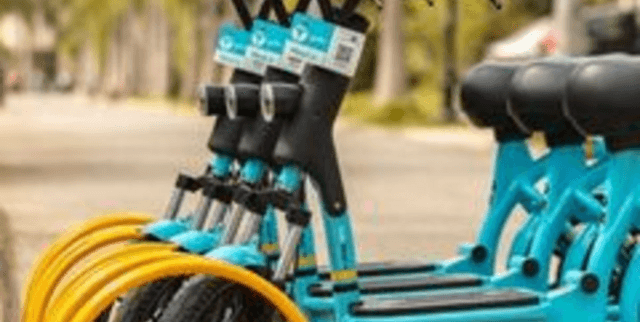Yulu Cycle Demand Prediction Data
Product Reviews & Feedback
Tags and Keywords
Trusted By




"No reviews yet"
Free
About
Demand analysis for shared electric cycles in the Indian market, capturing rental patterns across different environmental and temporal factors. The data supports an investigation into factors influencing revenue dips for a leading micro-mobility service provider, Yulu. The core purpose is to identify key variables that are statistically significant in predicting the volume of shared electric cycles rented. The dataset enables hypothesis testing and detailed exploratory data analysis to understand market dynamics and user behavior.
Columns
The dataset includes 12 fields, offering both temporal and environmental metrics alongside rental counts:
- datetime: Timestamp of the rental record.
- season: The season of the year (e.g., 1 to 4).
- holiday: Binary indicator for whether the day is a holiday (0 or 1).
- workingday: Binary indicator for whether the day is a working day (0 or 1).
- weather: Categorical measure of weather conditions (e.g., 1 to 4, where 4 is typically poor).
- temp: Actual temperature measurement (in Celsius, with a mean of 20.2).
- atemp: Feeling temperature, which is adjusted for human perception (with a mean of 23.7).
- humidity: The relative humidity percentage (with a mean of 61.9).
- windspeed: The recorded wind speed (with a mean of 12.8).
- casual: Count of non-registered users who rented a cycle (with a mean of 36).
- registered: Count of registered users who rented a cycle (with a mean of 156).
- count: The total number of rental transactions, derived from the sum of casual and registered users (the dependent variable, with a mean of 192).
Distribution
The data is provided in CSV format (
yulu_bike_sharing_dataset.csv) and consists of 12 columns. The file size is 648.35 kB. The record count is high, with 10.9k valid entries across all key columns, indicating zero missing or mismatched data points for the listed variables.Usage
The dataset is ideally suited for predicting demand for shared electric cycles in India by analysing how well variables like weather, season, and working days describe rental demands. Specific applications include:
- Establishing relations between demand ('Count') and independent variables (like Workingday, Weather, Season).
- Conducting statistical hypothesis tests, such as Bi-Variate Analysis, 2-sample t-tests (to check for differences across populations), ANNOVA, and Chi-square tests.
- Checking whether the number of cycles rented is similar or different across various seasons or weather conditions.
- Exploratory Data Analysis (EDA) and Data Visualisation projects.
Coverage
The data spans a period from 1 January 2011 to 20 December 2012. The maximum date recorded is 20 Dec 12, and the minimum is 1 Jan 11. The context is set within the Indian market, focusing on micro-mobility service demand for shared electric cycles, primarily utilized for first and last-mile travel in urban areas where Yulu zones are established (e.g., metro stations, office spaces).
License
Attribution-NonCommercial 4.0 International (CC BY-NC 4.0)
Who Can Use It
This resource is valuable for:
- Data Analysts and Scientists: Professionals seeking to perform statistical hypothesis testing and develop predictive models for vehicle sharing demand.
- Business Consultants: Those contracted by mobility providers (like Yulu) to understand market factors affecting revenue and demand fluctuation.
- Academics and Researchers: Individuals studying sustainable commuting, urban traffic elimination strategies, and the impact of environmental factors on transportation usage.
Dataset Name Suggestions
- Yulu Cycle Demand Prediction Data
- Indian Shared Electric Cycle Rental Analysis
- Micro-Mobility Demand Factors (2011-2012)
- Seasonal Impact on Shared Cycle Rentals
Attributes
Original Data Source: Yulu Cycle Demand Prediction Data
Loading...
Free
Download Dataset in CSV Format
Recommended Datasets
Loading recommendations...
